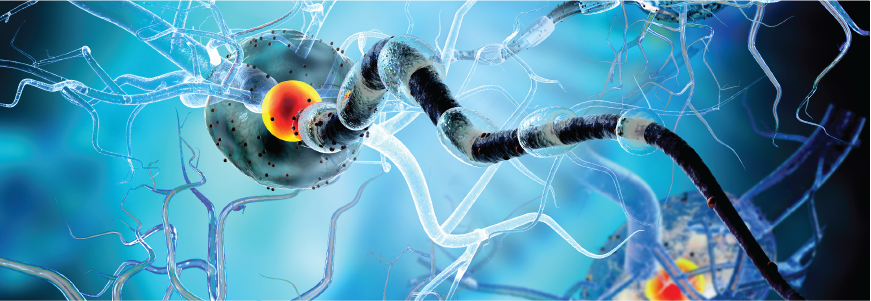Two specialties are collaborating to offer peripheral nerve care by combining surgical reanimation with nerve restoration therapy in one of the first practices of its kind in the Carolinas.
Neill Y. Li, MD, an orthopaedic surgeon, works with neurosurgeons to treat patients with brachial plexus and peripheral nerve injuries that occur at birth or in adulthood following trauma as well as upper motor neuron injuries following stroke, traumatic brain, and spinal cord injuries
Peripheral nerve surgery has improved significantly in the past decade through the development of nerve transfer procedures alongside improved nerve grafting techniques. Specialists can repair and reconstruct peripheral nerve injuries following trauma as well as relieve spasticity and contractures following upper motor neuron injuries in the brain or spinal cord to improve function and hygiene.
Li specializes in surgery of the hand and upper extremities, performs brachial plexus and peripheral nerve surgeries, as well as muscle and tendon transfers to further reanimate the extremity and has advanced training in microvascular surgery. The neurosurgery team has diverse experience in peripheral nerve and spine surgery, including nerve tumor resection, brachial plexus reconstruction, nerve decompression in the upper and lower extremities, as well as procedures at the spinal cord for neuropathic pain and disability.
The future vision for the program would be to create a single-visit clinic during which a patient can see a neurologist, a pain specialist, a neurosurgeon, and an orthopaedic surgeon at the same location providing coordinated care. Patients benefit now from their existing multidisciplinary collaboration, but a one-stop clinic would increase efficiency and convenience while offering a holistic focus on the patient’s overall health.
Multidisciplinary collaboration is objective of clinic
The objective of the clinic is to bring together surgical and medical specialists from both orthopaedic and neurologic practices, Li says. The team would include a physiatrist as well as occupational and physical therapists.
The collaborative clinic will offer nerve tumor surgery, brachial plexus and nerve reconstruction, tendon and free functioning muscle transfer. In addition, the specialists will offer treatment for spasticity, including hyperselective neurectomies, tendon lengthening and transfers, as well as nerve stimulator therapy for pain.
“We are working with patients who have severe injuries involving the brachial plexus, spinal cord, or brain,” Li says. “They may be left without motor function or significant spasticity. We attempt to reconstruct and reroute nerves and tendons and transfer muscles to help patients restore functionality.”
The center plans to incorporate the latest bench-to-bedside research to help patients restore neuron function. With the support of the Duke Orthopaedic Surgery Department leadership, Li has launched a laboratory researching peripheral nerve regeneration.
“This is a basic science and translational lab investigating the genetic and cellular interactions that optimize nerve regeneration in order to develop novel therapies and augment current treatments to ultimately improve the rate in which nerves regenerate,” Li says. “We know that certain nerve grafts and procedures can be more biologically conducive for nerve regeneration, but results vary between patients. We want to understand these variations to provide more reliable outcomes to all patients.”
Nerve reconstruction results are not predictable, Li cautions, in large part because of the slow growth rate. But he is studying mechanisms for mediated repair to deliver during surgery that will augment the body’s regenerative properties.
